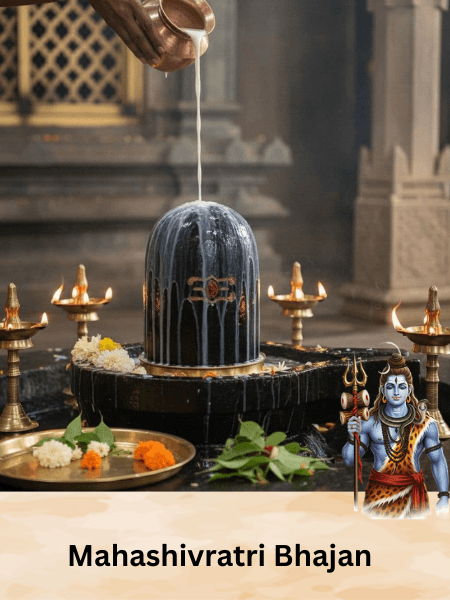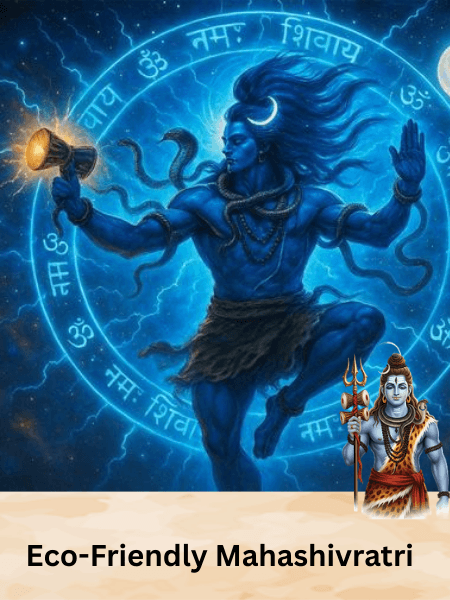
Sawan Shivratri Special Story
Explore the divine tale of Sawan Shivratri, where devotees perform night-long worship of Lord Shiva, observe fasts, and seek his blessings for strength, protection, and fulfillment of wishes.
Sawan Shivratri Special Story in English
According to mythology, a wealthy merchant lived in a town. Although his house was filled with wealth and food, he was deeply saddened because he had no children. To seek the blessing of a child, he devotedly worshipped Lord Shiva every Monday and lit a lamp at the temple in the evening.
Seeing his devotion, Goddess Parvati once asked Lord Shiva, “This is your true devotee who has worshipped you for so many years. Why don’t you grant him the blessing of a child?” Lord Shiva explained that the merchant’s previous karma did not include the blessing of children.
Moved by Parvati’s plea, Lord Shiva eventually agreed and appeared in the merchant’s dream, granting him the blessing of a son. However, he warned that the child would only live until the age of sixteen. The merchant shared the news with his wife, who was also saddened by their son’s short lifespan.
Despite knowing this, the merchant continued his worship of Lord Shiva. Soon, his wife became pregnant and gave birth to a beautiful boy named Amar. When Amar turned eleven, the merchant sent him to study in Kashi with his uncle. Before their journey, the merchant instructed Amar’s uncle to perform rituals, feed Brahmins, and donate generously along the way.
During their travels, they stopped in a kingdom where the king’s daughter was getting married. However, her groom was blind in one eye, a secret the royal family wished to keep hidden. The groom’s father requested Amar to take the groom’s place during the wedding ceremony, asking him to keep the truth secret. Amar agreed, and the marriage took place with Amar standing in as the groom.
Before leaving for Kashi, Amar wrote a letter to the princess revealing the truth and explaining his role in the marriage. Upon learning this, the princess refused to leave with the real groom, stating that she could not accept the deceit.
Meanwhile, Amar and his uncle reached Kashi. After a few years, Amar turned sixteen, and they organized a grand yajna (ritual sacrifice), feeding Brahmins and offering donations. Shortly after the yajna, Amar fell ill, fainted, and passed away.
Amar’s uncle was heartbroken and began mourning loudly. At that moment, Lord Shiva and Goddess Parvati were passing by. Hearing the cries, Goddess Parvati requested Lord Shiva to help the grieving man. Lord Shiva explained that Amar was the merchant’s son, granted only sixteen years of life. Moved by Goddess Parvati’s plea, Lord Shiva revived Amar and granted him a longer life. Amar’s uncle was overjoyed, and they returned home after completing Amar’s education.
On their way back, they passed through the kingdom where Amar’s marriage had taken place. The princess recognized Amar and happily reunited with him. The king blessed their union and sent them off together.
Back home, the merchant and his wife, initially worried about Amar’s fate, were ecstatic to see him return safely with his bride. Their sorrow turned into joy, and they welcomed them with open arms.
Through constant worship, the merchant not only received the blessing of a son but also saw his son granted a longer life by Lord Shiva.
Did you like this article?
Recommended
Read more
Mahashivratri 2026 Bhajans
Explore popular Mahashivratri bhajans for 2026. Learn devotional songs, mantras, and chants to honor Lord Shiva and enhance spiritual devotion during the festival.

Mahashivratri 2026 Puja for Kumbh Rashi
Learn how to perform Mahashivratri puja for Kumbh Rashi in 2026. Discover zodiac-specific rituals, mantras, and spiritual benefits to seek Lord Shiva’s blessings.

Mahashivratri 2026: Celebrate Sustainably
Learn how to celebrate Mahashivratri 2026 in an eco-friendly way. Discover sustainable puja ideas, decorations, and practices to honor Lord Shiva responsibly.